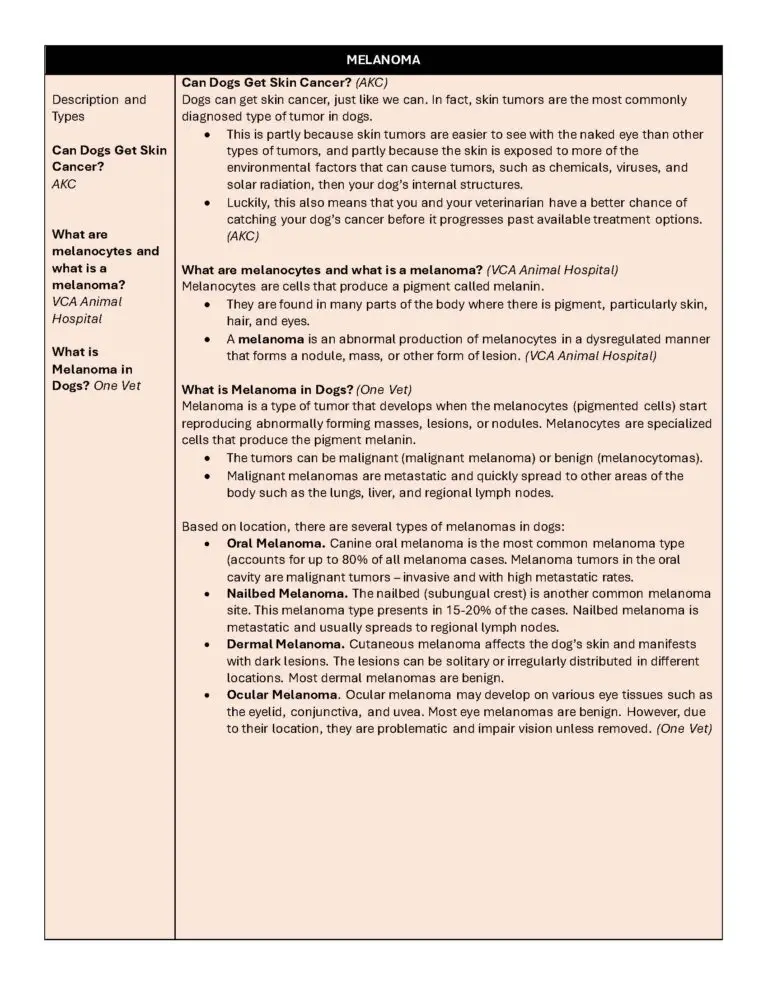Canine Melanoma
(Skin Cancer)
.& Breeds at Risk
Research, Resources & Education
This website is based on research and is NOT created to diagnose your pet.
Each animal is an individual and may exhibit symptoms in a different way.
It is advised that you ALWAYS CHECK WITH YOUR VETERINARIAN for a proper diagnosis and treatment plan.
Please visit Lost Temple Fitness & Cancer for more information of cancer in humans including
What is Cancer and Treatments.
Table of Contents
Canine Melanoma
Melanoma or skin cancer in dogs is a type of tumor that develops when the pigmented cells form masses, lesions, or nodules.
Symtpoms can range depending on the location of the tumor, for instance oral can show signs of facial swelling, bloody drool or foul breath. Skin tumors can show a rash or grouping of small blister-like lesions, usually on the feet, underbelly, and face.
Treatments can include surgery, diet, chemotherapy, immunotherapy and/or radiation.
What Dogs are at Risk?
Some Dogs that are at Risk due to Genetic Predisposition


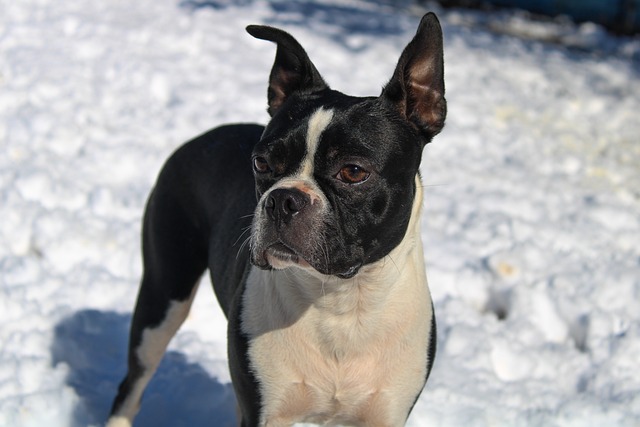



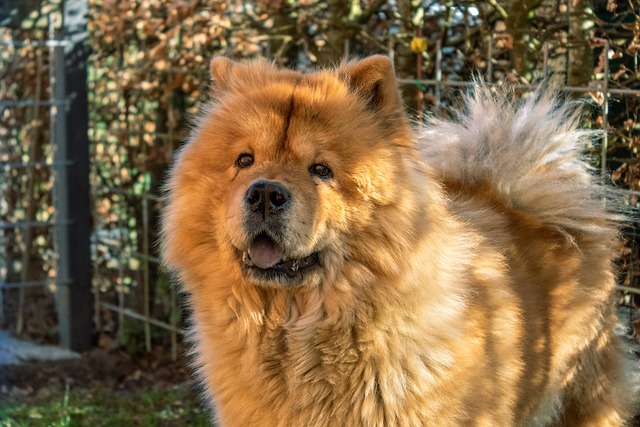

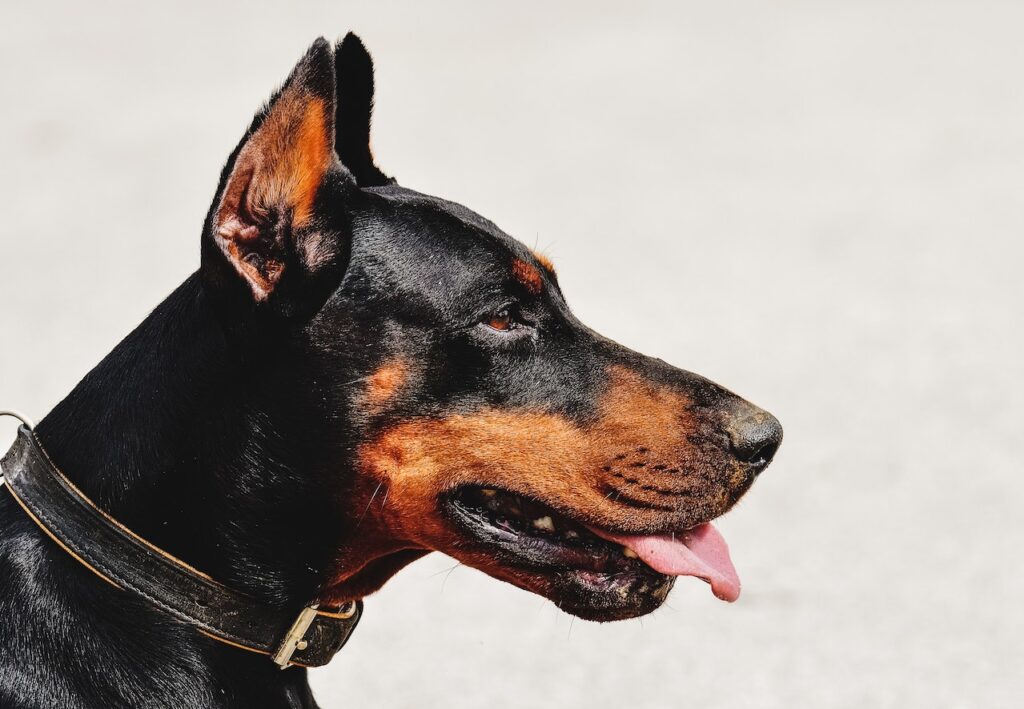

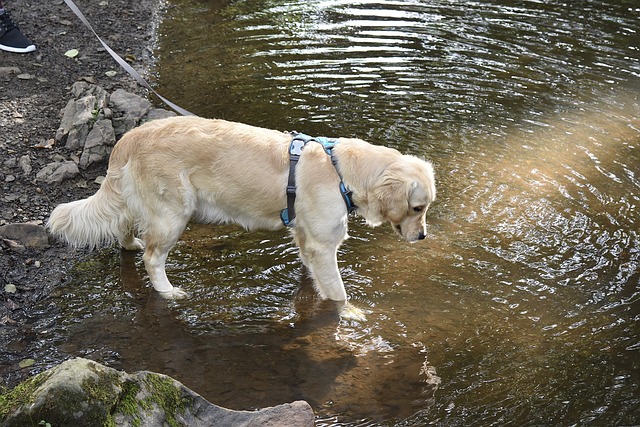
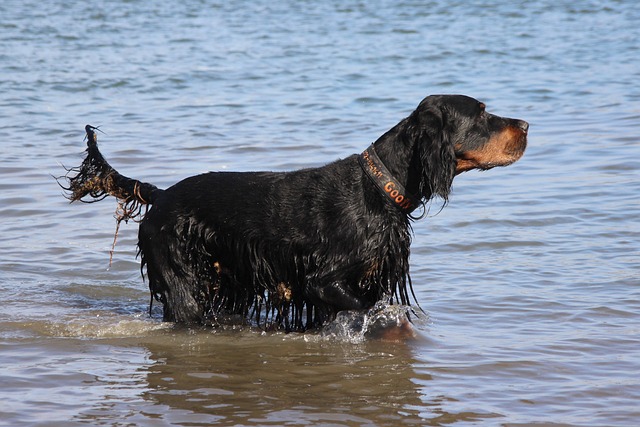


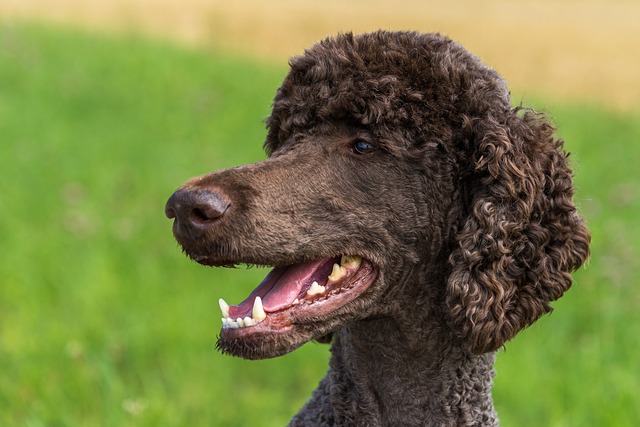




What is Melanoma?
Learn More about Melanoma in Humans and General Information at Lost Temple Fitness & Melenoma.
Can Dogs Get Skin Cancer? (AKC)
Can Dogs Get Skin Cancer? (AKC)
Dogs can get skin cancer, just like we can. In fact, skin tumors are the most commonly diagnosed type of tumor in dogs.
- This is partly because skin tumors are easier to see with the naked eye than other types of tumors, and partly because the skin is exposed to more of the environmental factors that can cause tumors, such as chemicals, viruses, and solar radiation, then your dog’s internal structures.
- Luckily, this also means that you and your veterinarian have a better chance of catching your dog’s cancer before it progresses past available treatment options. (AKC)
What are Melanocytes and What is a Melanoma? (VCA Animal Hospital)
What are melanocytes and what is a melanoma? (VCA Animal Hospital)
Melanocytes are cells that produce a pigment called melanin.
- They are found in many parts of the body where there is pigment, particularly skin, hair, and eyes.
- A melanoma is an abnormal production of melanocytes in a dysregulated manner that forms a nodule, mass, or other form of lesion. (VCA Animal Hospital)
What is Melanoma in Dogs? (One Vet)
What is Melanoma in Dogs? (One Vet)
Melanoma is a type of tumor that develops when the melanocytes (pigmented cells) start reproducing abnormally forming masses, lesions, or nodules. Melanocytes are specialized cells that produce the pigment melanin.
- The tumors can be malignant (malignant melanoma) or benign (melanocytomas).
- Malignant melanomas are metastatic and quickly spread to other areas of the body such as the lungs, liver, and regional lymph nodes
Based on location, there are several types of melanomas in dogs:
- Oral Melanoma. Canine oral melanoma is the most common melanoma type (accounts for up to 80% of all melanoma cases. Melanoma tumors in the oral cavity are malignant tumors – invasive and with high metastatic rates.
- Nailbed Melanoma. The nailbed (subungual crest) is another common melanoma site. This melanoma type presents in 15-20% of the cases. Nailbed melanoma is metastatic and usually spreads to regional lymph nodes.
- Dermal Melanoma. Cutaneous melanoma affects the dog’s skin and manifests with dark lesions. The lesions can be solitary or irregularly distributed in different locations. Most dermal melanomas are benign.
- Ocular Melanoma. Ocular melanoma may develop on various eye tissues such as the eyelid, conjunctiva, and uvea. Most eye melanomas are benign. However, due to their location, they are problematic and impair vision unless removed. (One Vet)
Melanoma Videos
YouTube Videos that help explain Melanoma in Dogs
Disclaimer:
This is for research only and Lost Temple Pets does not endorse any video presented on this website.
It is advised that you ALWAYS CHECK WITH YOUR VETERINARIAN for a proper diagnosis and treatment plan.
Causes and Risk Factors
Any Breed of Dog can get Melanoma (Dog Cancer.com)
Any Breed of Dog can get Melanoma (Dog Cancer.com)
- Dark-haired dogs are more likely to have dermal or nail bed melanoma.
- One study suggested that Vizslas between 5 and 11 years old are more prone to benign melanocytomas, hopeful news for Vizsla owners.
- Another study suggested that ocular (eye) melanoma, which is also usually benign, is possibly more common in female German Shepherds between 5 and 6 years old. (Dog Cancer.com)
Causes of Skin Cancer in Dogs (AKC)
Skin cancer can have a variety of causes.
- Just like with people, genetics play a large role in which dogs are more likely to get skin cancer. In fact, it is believed that genetics are the number one factor in the risk of a dog getting skin cancer.
- Triggers that may lead to a dog developing skin cancer include too much exposure to the sun, chemicals in the environment, hormonal abnormalities, and certain types of viruses. (AKC)
What Causes Melanoma Cancer in Dogs? (One Vet)
What Causes Melanoma Cancer in Dogs? (One Vet)
The exact cause of melanoma in dogs is unknown. Usually, canine melanoma is caused by a combination of genetic and environmental factors such as:
Age.
- Older dogs are at a higher risk of developing canine melanoma. The average age of melanoma diagnosis in dogs is ten years or older. However, oral tumors can also occur in younger dogs.
Breed.
- According to Embrace Pet Insurance, certain dog breeds (Golden Retrievers, Irish Setters, Cocker Spaniels, Schnauzers, Poodles, Bull Terriers, Chihuahuas, Pinschers), are at high risk of developing melanoma.
Excessive Skin Licking.
- First Vet states that excessive licking of one spot may stimulate the melanocytes to start multiplying uncontrollably. Over time, this may lead to mutation and tumor formation.
Sun Exposure.
- The exact role of sun exposure in melanoma development is unclear. This is confirmed by ASPCA Pet Insurance. However, the site mentions that melanoma is more common in light-colored dogs and in non-hairy body areas.
- Sun exposure, unlike in humans, doesn’t appear to play a role in determining risks for melanoma in dogs. (One Vet)
Risk Factors for Dog Melanoma (Dog Cancer.com)
Risk Factors for Dog Melanoma (Dog Cancer.com)
The following are possible risk factors, but with no strong data to support them:
- Excessive licking of one place on the skin causes a mutation in the cells.
- Chemicals in the environment, hormones, or viruses.
- Other sources of chronic inflammation, such as deep infections or burns.
- In general, neither sex is more likely to have melanoma. (Dog Cancer.com)
Symptoms
Symptoms of Malignant Melanoma in Dogs (Wag!)
Symptoms of Malignant Melanoma in Dogs (Wag!)
The signs that your dog may have malignant melanoma can vary depending on where the cancer originates. The three most common places are the mouth (oral), skin, or toes.
Oral
- Dark (black, brown, grey) lump or lesion on mouth, tongue, lips, or gums
- Facial swelling
- Bloody drool
- Foul breath
- Unable to eat
- Loose teeth
- Dropping food from the mouth
Skin
- Rash or grouping of small blister-like lesions, usually on the feet, underbelly, and face
- Large lump anywhere on the body, usually darker than the skin surrounding it
- Pain or bleeding from a spot or lesion of unknown origin that does not seem to be healing
Toes
- Swelling of the foot
- Discolored toenail
- Malformed toes
- Loose toenail (Wag!)
Diagnosis & Staging
Diagnosing Melanoma in Dogs (One Vet)
Diagnosing Melanoma in Dogs (One Vet)
Diagnosing melanoma in dogs starts with a physical examination.
- Since the primary tumor is visible, the vet will inspect its physical characteristics (swelling, ulceration, or bleeding).
- To confirm the diagnosis, the vet must perform fine-needle aspiration (FNI) and The analysis of the specimen taken with FNI is called cytology, and with biopsy – histopathology.
- FNI and biopsy will confirm the diagnosis and then help with tumor staging. The procedure is called mitotic index – the percentage of melanoma cells undergoing mitosis (cell division) at a time.
- It is used as a measure of how fast the tumor is expected to grow.
- To evaluate the dog’s overall health and check for metastasis, the veterinarian will perform
- Blood tests
- Urinalysis
- Chest x-rays
- Abdominal ultrasounds
- MRI
- CT scans. (One Vet)
What the Vets Are Looking for That Indicates Melanoma (Dog Cancer.com)
What the Vets Are Looking for That Indicates Melanoma (Dog Cancer.com)
Several things on the cytology or biopsy can help a veterinarian or pathologist diagnose melanomas and predict how aggressively they may behave.
Ki-67
- Several studies have found Ki-67 to be the most reliable indicator of how aggressive a dog’s melanoma will be.16
- Ki-67 is a nuclear protein associated with rapid tumor growth and cell proliferation. Knowing if these proteins are present may help predict aggressive behavior.5The pathologist can see these proteins with the help of a special stain.
- A Ki-67 index greater than 15% suggests a bad prognosis.16
Nuclear Atypia
- This is when the nuclei of the cells have an abnormal appearance associated with malignancy.16Sometimes it is reported as “mild,” “moderate,” or “severe.”
Mitotic Index
- Many studies suggest the mitotic index is the most accurate way to predict aggressive behavior in a tumor.
- The pathologist looks for cells that are right in the middle of dividing, then counts how many there are in a high-powered microscopic field.2
- The sample is then given a score.
- In general, a tumor with less than three mitotic figures in a high-power field will likely express benign behavior and be less aggressive. (Dog Cancer.com)
Staging - What is Malignant Melanoma? (Wag!)
Staging – What is Malignant Melanoma? (Wag!)
Malignant melanoma is often fatal within one year even with treatment to remove the cancer.
- The average survival time for this disease is up to about 10 months, though dogs can live up to 36 months with immediate surgical removal of the melanoma.
- The only treatment is surgery because chemotherapy and radiation are not effective.
There are four stages of malignant melanoma, and each has its own survival time.
- Stage one (smaller than 2 cm): about twelve months
- Stage two (2-4 cm): about eight months
- Stage three (larger than 4 cm or tumor that has spread): about four months
- Stage four (extensive metastasis): about one month (Wag!)
Treatment
How do You Treat Melanoma in Dogs? (One Vet)
How do You Treat Melanoma in Dogs? (One Vet)
There are several mainstream treatment options for melanoma in dogs – surgery, radiation therapy, chemotherapy, and immunotherapy.
Surgery.
- Surgical removal of the lesion is the treatment of choice for small melanomas that have not spread. In some cases, a veterinary oncologist might suggest surgery for palliative reasons. For toenail melanomas, the surgeon will perform an amputation of the entire toe.
Radiation Therapy.
- Radiation is often used for tumors that have spread in conjunction with surgery to improve the treatment outcome. Radiation is started two weeks after the tumor is removed and may prevent or delay tumor regrowth.
Chemotherapy.
- Chemo is sometimes suggested as part of the treatment plan. The usually used drug is carboplatin. Chemotherapy for melanoma in dogs is given in four to six doses, every three weeks.
Immunotherapy.
- There is a melanoma vaccine developed for the treatment of melanoma in dogs and is used in conjunction with surgery or radiation. A dog with melanoma will need a few initial doses and then booster doses.
In addition to medical treatment, ask your vet about some of the holistic cancer treatments you can offer your dog. Popular available options are diet and CBD.
Diet.
- Special diets are particularly important for dogs with oral melanoma. This is because the lesion’s presence in the mouth is uncomfortable or even painful.
- Your vet or a veterinary nutritionist should be able to tell you what foods are best for your dog.
Cannabidiol (CBD)
Products. CBD has many health benefits but the most relevant for a dog living with cancer would be anxiety and inflammation relief. When choosing pet CBD for your dog, opt for pet-safe vet-approved brands such as Honest Paws.
- Specifically formulated to relieve occasional joint stiffness and discomfort in your dog
- Made with organic, full-spectrum hemp oil and other all-natural ingredients
- Supports connective tissue (One Vet)
References
References
(AKC) American Kennel Club – Dog Skin Cancer: Types, Symptoms, and Treatment
By Hilarie Erb. Updated: Sep 06, 2023
https://www.akc.org/expert-advice/health/dog-skin-cancer-types/
Canine Journal – Malignant Melanoma In Dogs: Eye, Skin, Oral, Symptoms, And Treatments
By Sally Jones. Last Updated: JANUARY 13, 2023
This content was reviewed by veterinarian Dr. JoAnna Pendergrass, DVM.
https://www.caninejournal.com/melanoma-in-dogs/
Daily Paws – Melanoma in Dogs: How to Recognize and Treat the Cancerous Tumors
By Austin Cannon. Published on June 24, 2021
https://www.dailypaws.com/dogs-puppies/health-care/dog-conditions/melanoma-in-dogs
Dog Cancer.com – Melanoma in Dogs
By Lauren Harper Barrow, DVM
Medically Reviewed by Madeline Ederer, LVT, RVT, VTS (IM-Oncology)
Updated on August 30, 2023
https://www.dogcancer.com/articles/types-of-dog-cancer/melanoma-in-dogs/
One Vet – A Pet Owners Guide to Melanoma in Dogs: Causes, Symptoms, and Treatment
Written by Ivana Crnec, DVM. Updated on 07/22/2024
Expertly Reviewed by JoAnna Pendergrass, DVM
https://www.onevet.ai/melanoma-in-dogs/
VCA Animal Hospital – Melanomas of the Skin and Toes
By Ryan Llera, BSc, DVM; Debbie Stoewen DVM, MSW, RSW, PhD; Christopher Pinard, DVM
https://vcahospitals.com/know-your-pet/melanomas-of-the-skin-and-toes
Wag! – Malignant Melanoma in Dogs
Written By Hannah Hollinger. Published: 11/27/2016. Updated: 01/12/2022
Veterinary reviewed by Dr. Linda Simon, MVB MRCVS
https://wagwalking.com/condition/malignant-melanoma
Cancer/Breed Chart
| BREED | BRAIN | HEMANGIO- SARCOMA | LYMPHOMA | MAMMARY TUMORS | MAST CELL TUMOR | MELANOMA | NASAL TUMOR | ORAL | OSTEOSARCOMA | PERIANAL/ ANAL SAC | SOFT TISSUE SARCOMA | TRANSITIONAL (TCC) / UROTHELIAL (UC) |
|---|---|---|---|---|---|---|---|---|---|---|---|---|
| Airedale Terrier | Lymphoma | Melanoma | Nasal Tumor | Soft Tissue Sarcoma | TCC or UC | |||||||
| Basset Hound | Hemangiosarcoma | Lymphoma | Nasal Tumor | Soft Tissue Sarcoma | ||||||||
| Bulldog, English | Brain | Lymphoma | Mast Cell Tumor | Perianal/Anal Sac | Soft Tissue Sarcoma | |||||||
| Bullmastiff | Lymphoma | Mast Cell Tumor | Soft Tissue Sarcoma | |||||||||
| St. Bernard | Lymphoma | Osteosarcoma | Soft Tissue Sarcoma | |||||||||
| Golden Retriever | Brain | Hemangiosarcoma | Lymphoma | Mast Cell Tumor | Melanoma | Oral | Osteosarcoma | Perianal/Anal Sac | Soft Tissue Sarcoma | |||
| Labrador Retriever | Hemangiosarcoma | Lymphoma | Mast Cell Tumor | Melanoma | Nasal Tumor | Oral | ||||||
| Scottish Terrier | Brain | Lymphoma | Melanoma | Nasal Tumor | Oral | Soft Tissue Sarcoma | TCC or UC | |||||
| Boxer | Brain (Glioma) | Hemangiosarcoma | Lymphoma | Mammary Tumor | Mast Cell Tumor | Oral | Osteosarcoma | Soft Tissue Sarcoma | ||||
| Beagle | Hemangiosarcoma | Lymphoma | Mast Cell Tumor | Perianal/Anal Sac | TCC or UC | |||||||
| West Highland White Terrier | Lymphoma | |||||||||||
| Chow Chow | Lymphoma | Melanoma | Oral | |||||||||
| Poodle, Standard | Lymphoma | Melanoma | Nasal Tumor | Oral | ||||||||
| Rottweiler | Lymphoma | Oral | Osteosarcoma | |||||||||
| Poodle, Toy | Lymphoma | Mammary Tumor | Melanoma | Nasal Tumor | ||||||||
| Yorkshire Terrier | Lymphoma | Mammary Tumor | ||||||||||
| German Shepherd | Hemangiosarcoma | Lymphoma | Mammary Tumor | Melanoma | Nasal Tumor | Oral | Osteosarcoma | Perianal/Anal Sac | ||||
| Poodle, Miniature | Lymphoma | Mammary Tumor | Melanoma | Nasal Tumor | Oral | |||||||
| Affenpinscher | ||||||||||||
| Afghan Hound | ||||||||||||
| Alaskan Malamute | Perianal/Anal Sac | |||||||||||
| American Eskimo, Toy and Standard | ||||||||||||
| American Foxhound | ||||||||||||
| American Pitt Bull Terrier | Hemangiosarcoma | |||||||||||
| American Staffordshire Terrier | ||||||||||||
| American Water Spaniel | ||||||||||||
| Anatolian Shepherd Dog | ||||||||||||
| Australian Cattle Dog | TCC or UC | |||||||||||
| Australian Shepherd | TCC or UC | |||||||||||
| Australian Terrier | ||||||||||||
| Basenji | ||||||||||||
| Bearded Collie | ||||||||||||
| Beauceron | ||||||||||||
| Bedlington Terrier | ||||||||||||
| Belgian Groenendael | ||||||||||||
| Belgian Malinois | ||||||||||||
| Belgian Tervuren | ||||||||||||
| Bernese Mountain Dog | Hemangiosarcoma | Melanoma | Soft Tissue Sarcoma | |||||||||
| Bichon Frise’ | TCC or UC | |||||||||||
| Black and Tan Coonhound | ||||||||||||
| Black Russian Terrier | ||||||||||||
| Bloodhound | Soft Tissue Sarcoma | |||||||||||
| Boerboel | ||||||||||||
| Border Collie | Brain | TCC or UC | ||||||||||
| Border Terrier | ||||||||||||
| Borzoi | Osteosarcoma | |||||||||||
| Boston Terrier | Brain | Mast Cell Tumor | Melanoma | Soft Tissue Sarcoma | ||||||||
| Bouvier des Flandres | Soft Tissue Sarcoma | |||||||||||
| Briard | ||||||||||||
| Brussels Griffon | ||||||||||||
| Bull Terrier | Mast Cell Tumor | Melanoma | ||||||||||
| Bull Terrier, Miniature | Mast Cell Tumor | Melanoma | ||||||||||
| Cairn Terrier | ||||||||||||
| Canaan Dog | ||||||||||||
| Cane Corso (Italian Mastiff) | ||||||||||||
| Caucasian Shepherd | ||||||||||||
| Cavalier King Charles Spaniel | Perianal/Anal Sac | |||||||||||
| Chesapeake Bay Retriever | Melanoma | |||||||||||
| Chinese Crested | ||||||||||||
| Chinese Shar-Pei | Mast Cell Tumor | Soft Tissue Sarcoma | TCC or UC | |||||||||
| Clumber Spaniel | ||||||||||||
| Curly Coated Retriever | ||||||||||||
| Dalmation | Hemangiosarcoma | |||||||||||
| Dandie Dinmont Terrier | ||||||||||||
| Dogo Argentino | ||||||||||||
| Dogue de Bordeaux | ||||||||||||
| English Foxhound | ||||||||||||
| English Toy Spaniel AKA King Charles Spaniel | ||||||||||||
| Field Spaniel | ||||||||||||
| Finnish Spitz | ||||||||||||
| Flat-Coated Retriever | Hemangiosarcoma | |||||||||||
| Fox Terrier, Smooth | Mast Cell Tumor | |||||||||||
| Fox Terrier, Toy | Mast Cell Tumor | |||||||||||
| Fox Terrier, Wire | TCC or UC | |||||||||||
| French Bulldog | ||||||||||||
| German Pinscher | ||||||||||||
| German Wirehaired Pointer | ||||||||||||
| Glen of Imaal Terrier | ||||||||||||
| Great Dane | Brain | Osteosarcoma | Soft Tissue Sarcoma | |||||||||
| Great Pyrenees | ||||||||||||
| Greater Swiss Mountain Dog | ||||||||||||
| Greyhound | Brain (Meningioma) | Hemangiosarcoma | Osteosarcoma | Soft Tissue Sarcoma | ||||||||
| Harrier | ||||||||||||
| Havanese | ||||||||||||
| Ibizan Hound | ||||||||||||
| Irish Terrier | ||||||||||||
| Irish Water Spaniel | ||||||||||||
| Irish Wolfhound | Osteosarcoma | |||||||||||
| Italian Greyhound | Brain | Hemangiosarcoma | ||||||||||
| Japanese Chin | ||||||||||||
| Keeshond | Nasal Tumor | |||||||||||
| Kerry Blue Terrier | ||||||||||||
| Komondor | ||||||||||||
| Kuvasz | ||||||||||||
| Lakeland Terrier | ||||||||||||
| Leonberger | Osteosarcoma | |||||||||||
| Lhasa Apso | TCC or UC | |||||||||||
| Lowchen | ||||||||||||
| Manchester Terrier Toy | ||||||||||||
| Manchester Terrier, Standard | ||||||||||||
| Mastiff | Brain | |||||||||||
| Miniature Pincher | ||||||||||||
| Neapolitan Mastiff | ||||||||||||
| Newfoundland | ||||||||||||
| Norfolk Terrier | ||||||||||||
| Norwegian Buhund | ||||||||||||
| Norwegian Elkhound | Brain | Nasal Tumor | ||||||||||
| Norwich Terrier | ||||||||||||
| Nova Scotia Duck Tolling Retriever | ||||||||||||
| Old English Sheepdog | Brain | |||||||||||
| Otterhound | ||||||||||||
| Papillon | ||||||||||||
| Parsons Russell Terrier | TCC or UC | |||||||||||
| Pekingese | Brain | |||||||||||
| Petit Basset Griffon Vendeen (PBGV) | ||||||||||||
| Pharaoh Hound | ||||||||||||
| Plott Hound | ||||||||||||
| Polish Lowland Sheepdog | ||||||||||||
| Pomeranian | ||||||||||||
| Portuguese Water Dog | Brain | Hemangiosarcoma | ||||||||||
| Presa Canario | ||||||||||||
| Pug | Brain | Mast Cell Tumor | Soft Tissue Sarcoma | |||||||||
| Puli | ||||||||||||
| Pyrenean Shepherd | ||||||||||||
| Rhodesian Ridgeback | Mast Cell Tumor | Soft Tissue Sarcoma | ||||||||||
| Saluki | ||||||||||||
| Samoyed | Perianal/Anal Sac | |||||||||||
| Schipperke | ||||||||||||
| Schnauzer, Miniature | Mast Cell Tumor | Melanoma | Perianal/Anal Sac | Soft Tissue Sarcoma | ||||||||
| Schnauzer, Standard | Mast Cell Tumor | Melanoma | Soft Tissue Sarcoma | |||||||||
| Sealyham Terrier | ||||||||||||
| Shiba Inu | ||||||||||||
| Shih Tzu | Brain | |||||||||||
| Siberian Husky | Perianal/Anal Sac | |||||||||||
| Silky Terrier | ||||||||||||
| Skye Terrier | Hemangiosarcoma | |||||||||||
| Soft-Coated Wheaten Terrier | ||||||||||||
| Spinone Italiano | ||||||||||||
| Staffordshire Bull Terrier | Mast Cell Tumor | |||||||||||
| Sussex Spaniel | ||||||||||||
| Swedish Vallhund | ||||||||||||
| Tibetan Mastiff | ||||||||||||
| Tibetan Spaniel | ||||||||||||
| Tibetan Terrier | ||||||||||||
| Tosa | ||||||||||||
| Vizsla | Melanoma | |||||||||||
| Weimaraner | Mast Cell Tumor | |||||||||||
| Welsh Corgi, Cardigan | ||||||||||||
| Welsh Corgi, Pembroke | ||||||||||||
| Welsh Springer Spaniel | ||||||||||||
| Welsh Terrier | ||||||||||||
| Whippet | Hemangiosarcoma | TCC or UC | ||||||||||
| Wirehaired Pointing Griffon | ||||||||||||
| Akita (American) | Oral | |||||||||||
| Collie, Rough / Smooth Coat | Brain (Meningioma) | Nasal Tumor | Oral | TCC or UC | ||||||||
| Gordon Setter | Melanoma | Oral | ||||||||||
| Irish Setter | Melanoma | Oral | Osteosarcoma | Soft Tissue Sarcoma | ||||||||
| Schnauzer, Giant | Mast Cell Tumor | Melanoma | Oral | |||||||||
| Scottish Deerhound | Brain | Melanoma | Oral | Osteosarcoma | TCC or UC | |||||||
| Shetland Sheepdog | Nasal Tumor | Oral | TCC or UC | |||||||||
| Brittany | Mammary Tumor | |||||||||||
| Chihuahua | Mammary Tumor | Melanoma | ||||||||||
| English Cocker Spaniel | Mammary Tumor | |||||||||||
| English Setter | Mammary Tumor | |||||||||||
| English Springer Spaniel | Mammary Tumor | Melanoma | Perianal/Anal Sac | |||||||||
| Maltese | Mammary Tumor | |||||||||||
| Pointer | Hemangiosarcoma | Mammary Tumor | ||||||||||
| Cocker Spaniel (American) | Mammary Tumor | Mast Cell Tumor | Melanoma | Oral | Perianal/Anal Sac | |||||||
| Dachshund | Brain | Mammary Tumor | Mast Cell Tumor | Oral | Perianal/Anal Sac | |||||||
| Doberman Pinscher | Brain | Mammary Tumor | Melanoma | Oral | Osteosarcoma | |||||||
| German Shorthaired Pointer | Mammary Tumor | Nasal Tumor | Oral |
